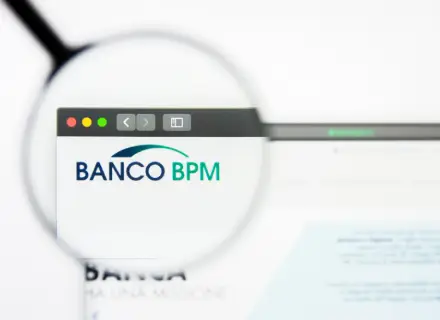The CEO of Italy’s Banco BPM, the subject of an unsolicited all-share offer made public by UniCredit, warned of significant job losses should the deal proceed in a letter to employees, urging the bank to maintain its independence.
CEO Giuseppe Castagna stated that the UniCredit bid would result in the loss of over 6,000 jobs at Banco BPM, despite UniCredit’s plans to reduce expenses by more than a third.
“We are a big autonomous bank, an Italian bank with a strong vocation of being close to our regions and to the small and medium-sized companies that make up the backbone of our country,” Giuseppe Castagna said.
Banco BPM has rejected UniCredit’s 10-billion-euro (USD 101.5 billion) offer, claiming it undervalued the bank, bound it to strategic agreements, and increased shareholder risk.
The second-biggest bank in Italy, UniCredit, has a stake in Commerzbank in Germany, which was considered its top acquisition target. Investors were taken aback by its sudden shift from Germany to Italy with the latest acquisition attempt directed at Banco BPM, which seemed to catch the Italian government off guard.
The Italian government, which had advanced plans for a merger of BPM with rival Monte dei Paschi di Siena to create a third force in Italian banking behind UniCredit and Intesa Sanpaolo, is also thrown for a loop by UniCredit’s move.
UniCredit CEO Andrea Orcel is now planning to meet with Credit Agricole management to discuss the future of the lenders’ partnerships after the Italian bank offered to buy rival Banco BPM, Reuters reported.
“Credit Agricole is crucial to the success of Orcel’s bid for his smaller peer because it owns 9% of Banco BPM and because UniCredit has an agreement to sell funds distributed by Amundi, which Credit Agricole owns, to its clients in Italy,” the media house stated.
UniCredit’s bid for Banco BPM has also managed to catch the attention of the Italian banking sector’s main union, as it raised concerns about the potential impact of the deal on jobs.
“There is great concern about the employment fallout that could result from the deal. The numbers circulated so far are worrying and call for deep thought,” FABI union said in a statement, while adding that the offer was a “market transaction, in a phase of radical changes in the banking sector, both at a national and European level”.
Despite UniCredit’s surprise bid for Banco BPM’s acquisition is creating some sort of discomfort in the Italian banking circle, as per Reuters, the venture was always on the wish list of UniCredit CEO Andrea Orcel (a veteran dealmaker himself).
Even though many are terming UniCredit’s 10 billion euro (USD 11 billion) all-share offer for Banco BPM as an “Unsolicited One,” Orcel justified the move to the investors, by stating that he had to act because of an acceleration in Italy’s financial sector consolidation, where the government in November 2024 offloaded a 15% stake in Monte dei Paschi di Siena (MPS), potentially paving the way for an eventual tie-up between MPS and Banco BPM.
Buying Banco BPM will help Orcel reduce the gap with Intesa Sanpaolo, which in 2020 leapfrogged UniCredit to become Italy’s biggest bank by assets by buying northern mid-tier bank UBI and securing more than a fifth of the domestic market. At the end of September 2024, Intesa had 949 billion euros in assets, followed by UniCredit (for which Italy is the main market among the 13 where it operates) at 800 billion euros and Banco BPM at 195 billion euros.
“Banco BPM has three-quarters of its more than 1,400 branches in Italy’s richer north. It accounts for 13% of all bank branches in Lombardy, where UniCredit is weak despite having its headquarters in Italy’s financial and fashion capital Milan. Additionally, Banco BPM has an 8% market share in Veneto, another wealthy region in the northeast, and 10% in Turin’s Piedmont’s region,” Reuters reported.
After a merger, the combined entity’s market share will reach 20% in several economically crucial regions, such as Lombardy (24%), Veneto (21%), and Emilia-Romagna (21%), without creating dominance in any specific province, calculations by Italian broker Intermonte showed.
Both UniCredit and Banco BPM want to grow net fees and be more like Intesa, where fees exceed 40% of overall revenues thanks to its in-house insurance and asset management. UniCredit is bringing in-house its life insurance operations, something which Banco BPM has already done.
As per Orcel, cost savings from a deal with BPM could reach 900 million euros a year before taxes and 800 million after taxes, and would only minimally affect the branch network. Additional revenues are estimated at 300 million euros a year. The return on investment for UniCredit from a deal is expected to surpass 15%, with earnings per share increasing by a “high single-digit” percentage within a couple of years.

